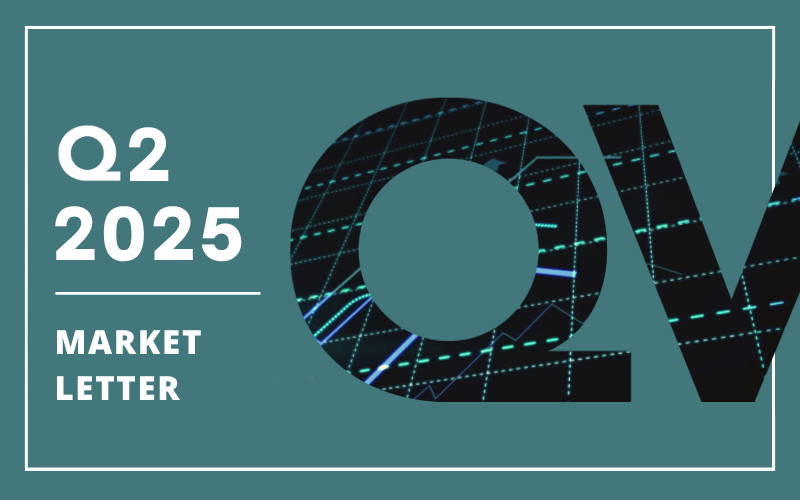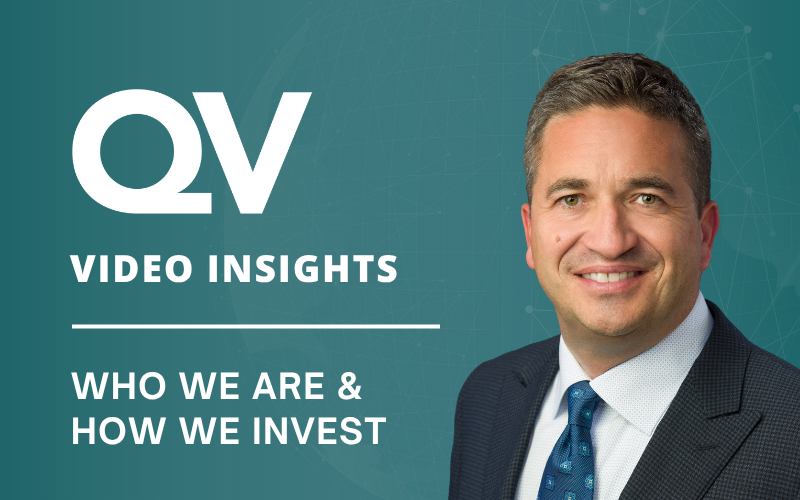The profound effect of COVID-19 on the global economy and the human suffering it has caused cannot be overstated. Efforts to contain this health crisis have resulted in economic and financial crises as well. Hundreds of millions of people being quarantined has caused an unprecedented shock to the world economy, leading to the fastest bear market in history. The extreme volatility in all asset classes over the past six weeks has been particularly jarring. On their own, bear markets are painful to endure. But the added fear regarding families’ safety and economic well-being has created heightened anxiety. While we too are worried about the unknowns of this new virus, we believe that the economic effects will be transitory. Using history as our guide, extreme market sell-offs like this one should be viewed as opportunities to rebalance portfolios and add to quality businesses when they are on sale. That being said, we act cautiously as the depth and duration of the bear market is always unknown.
WHAT WE THINK WE KNOW – THE SYSTEM WILL BE SUPPORTED
The exponential transmission of COVID-19 took place as a slow-to-respond global population looked on. Conversely, the Federal Reserve has moved swiftly and with significant heft to support the financial system, providing a massive liquidity backstop and additional support for asset prices through aggressive rate cutting. This decisive action was critical in easing market panic and preventing highly levered and illiquid markets from seizing up. In addition, Congress passed the largest emergency aid package in US history, an amount relative to GDP not seen since World War II. Canada has acted swiftly on the fiscal and monetary front as well. Learnings from the financial crisis are being applied, and the banking system is in a stronger position to help facilitate liquidity.
These efforts will mute an economic fallout of epic proportions as the global economy is nearly shut down. To see the US administration act so quickly to sign a bipartisan agreement tells you the gravity of the situation. A record level of global debt has left the world economy fragile to unforeseen shocks, and extreme measures are becoming the norm. The trillions of dollars of debt that governments are now issuing will have long-term consequences … but there is no choice.
WHAT WE DON’T KNOW – WHEN THIS WILL END AND WHAT “NORMAL” WILL LOOK LIKE
No one knows when and how this will end, but we put faith in our health care professionals to manage through this crisis. Many would like to believe it will be a quick turnaround. How, though, do we take the real economy from 100 to 0 and then back to 100 again? Will we potentially risk further outbreaks? What damage will be caused along the way? How much will this scar peoples’ psyche and their ability to look confidently into the future? We expect to have fits and starts as the situation normalizes, in both the real economy and the stock market. Although everyone hopes for a swift recovery, as investors, we must be prepared for the fallout to last longer than most expect. Economic data shows that the majority of individuals are living paycheque to paycheque with very little in terms of financial reserves. This will make the recovery more challenged for the consumer. For corporations, liquidity and balance sheet strength are vital and will likely become significant points of differentiation the longer this environment persists.
QUALITY AND VALUE HAVE NOT HELD IN LIKE PREVIOUS DOWNTURNS
Historically our portfolios have provided greater defensive qualities than they showed this quarter. Some strategies still did reasonably well on a relative basis (but take that with a grain of salt given the challenged absolute numbers). In reviewing the quarterly performance, there were two distinct periods within the quarter. Markets rallied from the beginning of the year until mid February. Most strategies didn’t keep up, as the same trends from 2019’s strong market remained in place. We did, for the most part, perform in line or better during the last five tumultuous weeks of the quarter, but it wasn’t enough.
Our portfolios looked like they always do – solid businesses with better valuations and durable balance sheets – but very few businesses were spared in this panicked collapse. Broad, indiscriminate selling resulted from a few factors: over-indebted investors, a lack of liquidity, ETF selling and computer program trading. Forced selling from these sources led to a market meltdown as liquidity disappeared. Institutional and individual investors were desperate to raise cash and sold whatever they could.
Although the businesses we own have been more volatile in the downturn than we’d hope, that does not mean they are riskier. We have never equated the two. The market has sold these companies down to irrational levels and the dislocation we see from the actual business fundamentals is an aberration. Our stock by stock analysis shows significant potential in the majority of the businesses we own. Our risk management continues to reflect superior balance sheet strength at valuation and dividend levels that are rarely seen.
CANADA – THE DOUBLE WHAMMY
Just when you thought it couldn’t get any worse, plummeting oil prices sent the sector and the overall Canadian stock market into a tailspin. With oil demand falling off a cliff as a result of the global shutdown, it was widely expected that OPEC would, at the very least, maintain existing production cuts. Not only did they not do that, instead, Saudi Arabia flooded the market with additional supply, sending oil prices down to $20!
This is a very fluid situation. We do not believe $20 oil prices will persist for very long. If they do, much of the US shale business will disappear, accompanied by significant unemployment and bankruptcies. Canada’s industry would also be hollowed out significantly. Because of the dire economic consequences for numerous countries, unprecedented talks between OPEC, Russia and the United States are now taking place. Recently, the Alberta government announced it would be taking a stake and backing the construction of TC Energy’s much-anticipated Keystone XL pipeline, a very positive development for the domestic industry.

Source: Capital IQ & QV Investors
GOING FORWARD
Our portfolios exhibit fundamental valuation characteristics that we have only seen a couple times in the last twenty years. The previous chart shows the price/book value multiple of our Canadian large cap strategy; our other mandates look similar. In a crisis, markets overreact and focus on the near-term bad news. In the long run, it is the fundamentals of a business that underpin its valuation. That’s what gives us conviction to buy when there is still so much uncertainty. The market has priced many companies as if the next six months will be representative of the next six years, which we just don’t believe is the case. They are worth much more than the current quote. Once markets settle down, our businesses will once again be valued on their long-term earnings power and dividends. This conviction is evidenced by the significant increase in investment many QV employees have been making into our equity strategies.
With interest rates around the globe pushed to near zero, we’ve reduced our overall bond exposure while taking advantage of some attractive corporates. Our trailing earnings yields are roughly 8-11% amongst our different strategies (between 3.5%-4.5% dividend yields). The long-term risk/reward looks better than it has for a long time.
As investors we never have a clear picture – there are always some pieces missing from the puzzle. Our goal is not to call a bottom. Our objective is to methodically put money to work and to be approximately right during significant downturns. That’s what we have done and will continue to do.




